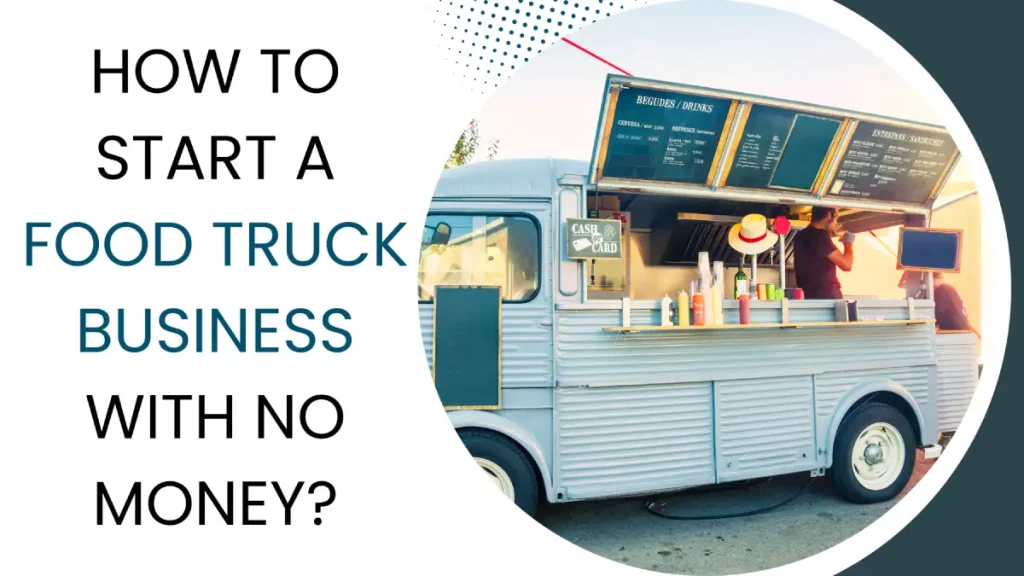
Turn Your Culinary Dream to Reality: Launching a Food Truck Business in the U.S. with Limited Funds
Ah, the allure of the food truck! A mobile kitchen, a delicious menu, and the freedom of the open road – it’s a recipe for entrepreneurial adventure. But what if you’re brimming with passion but short on funds? Fear not, aspiring food truck owner! With careful planning, resourcefulness, and a touch of creativity, you can turn your food truck dream into a reality.
Phase 1: Laying the Foundation
● Concept & Market Research: Before diving in, delve into the world of food trucks. Research current trends, identify unmet needs in your local market, and explore popular food truck niches. Consider factors like cuisine type, dietary restrictions catered to (vegan, gluten-free), and overall uniqueness. Conduct surveys or host pop-up events to gauge customer interest and refine your concept.
● Craft a Winning Business Plan: This roadmap is crucial for securing funding and keeping your venture focused. Outline your concept, target market, competitive analysis, marketing strategy, and detailed financial projections. Include equipment needs, operational costs, and potential revenue streams.
● Navigating the Legal Maze: Food truck regulations vary by city and state. Research permits, licenses (health, vending), and food safety certifications required in your area. Contact your local health department and Small Business Administration (SBA) office for comprehensive guidance.
Phase 2: Building Your Food Truck Empire (on a Budget)
● Funding Finesse: Let’s face it, starting any business requires capital. Explore creative funding options outside of traditional bank loans. Consider pitching your concept to angel investors, crowdfunding platforms, or participating in food truck business plan competitions.
● Food Truck on a Budget: The truck itself is a significant cost. Explore pre-owned trucks, consider leasing options, or get creative with repurposing trailers. Remember, functionality trumps fancy – prioritize a well-maintained vehicle with essential kitchen equipment.
● Second-hand Savvy: Equip your truck with used yet functional kitchen tools. Explore restaurant supply stores, online marketplaces, or even garage sales to find affordable equipment. Prioritize multi-purpose tools to maximize space.
Phase 3: From Kitchen to Customers
● Developing a Menu that Sells: Craft a menu that aligns with your concept, caters to your target audience, and is cost-effective to prepare. Focus on fresh, high-quality ingredients, signature dishes, and portion sizes that deliver value.
● Embrace the Minimum Viable Product (MVP): Start small with a limited menu. This allows you to refine recipes, gauge customer response, and minimize initial inventory costs.
● Marketing Magic on a Shoestring Budget: Utilize free and low-cost marketing strategies. Build a social media presence, create a user-friendly website, and network with local businesses and event organizers. Eye-catching signage and strategic location selection are key for attracting customers.
Phase 4: Success is a Journey, Not a Destination
● Building Customer Loyalty: Provide exceptional customer service, offer loyalty programs, and encourage customer feedback. Utilize social media to engage with your audience and build a strong brand identity.
● Data-Driven Decisions: Track your sales, customer preferences, and operational costs. Analyze data to identify areas for improvement, optimize your menu, and adapt to market trends.
● Remember: Passion, perseverance, and a commitment to quality are essential ingredients for success. Be prepared for long hours, unexpected challenges, and the constant learning curve that comes with running any business.
Essential Legal Documents for Your Food Truck
While regulations can vary slightly by city and state, here’s a breakdown of the essential legal documents, licenses, and permits you’ll need to secure:
Business Formation
● Business Entity: Decide on your business structure (sole proprietorship, LLC, corporation). This impacts taxes, liability, and ownership. Consult an accountant or lawyer for guidance on the best structure for your situation.
● Business License: Obtain a general business license from your city or county. This authorizes you to operate your food truck business within their jurisdiction.
● Employer Identification Number (EIN): If you have employees, or plan to in the future, you’ll need an EIN from the IRS to identify your business for tax purposes.
Operational Permits and Licenses
● Health Department Permit: This is the most critical permit, authorizing you to prepare and sell food. Expect inspections to ensure your truck meets hygiene and safety standards. Contact your local health department for specific requirements.
● Food Handler Permits: All food truck staff who handle food must have a food handler permit, demonstrating basic food safety knowledge obtained through a certified training program.
● Fire Safety Inspection: Your local fire department will inspect your truck to ensure it meets fire safety codes. This may involve having a fire extinguisher and proper ventilation.
● Seller’s Permit: Depending on your location, you may need a seller’s permit to collect sales tax on your food sales. Contact your state’s Department of Revenue for details.
Location-Specific Permits
● Parking Permits: Research designated food truck vending zones or obtain permits for specific locations like parks or private events.
● Special Event Permits: If you plan to participate in festivals or farmers’ markets, secure any necessary special event permits from the event organizers.
Additional Considerations
● Commissary Agreement: Most localities require food trucks to have a formal agreement with a licensed commercial kitchen (commissary) for tasks like food storage, prep work, and waste disposal.
● Remember: Don’t be intimidated by the legalities! Contact your local health department and SBA office for personalized guidance. They can provide resources and help you navigate the permitting process.
Launching a Food Truck Business with No Money: Cost Comparison Table
| Essential | Cost | Alternative Option | Cost Savings |
| Food Truck Purchase | $50,000 – $100,000 | Rent or Lease: $2,000 – $5,000/month | 50% – 75% savings |
| Licenses and Permits | $1,000 – $5,000 | Varying costs depending on location | N/A |
| Equipment and Supplies | $10,000 – $20,000 | Buy used or second-hand: $5,000 – $10,000 | 25% – 50% savings |
| Marketing and Advertising | $5,000 – $10,000 | Social media and word-of-mouth: free | 100% savings |
| Insurance | $2,000 – $5,000/year | Compare insurance providers for best rates | 10% – 20% savings |
| Initial Inventory and Stock | $2,000 – $5,000 | Start small and restock regularly | 25% – 50% savings |
| Staffing and Labor | $5,000 – $10,000/month | Hire part-time or contract workers | 25% – 50% savings |
| Fuel and Maintenance | $1,000 – $3,000/month | Regular maintenance and fuel-efficient driving | 10% – 20% savings |
Note: The costs listed are estimates and may vary depending on location, size, and other factors.
Look for mentorship opportunities from established food truck owners. Partner with local farms or suppliers for fresh, seasonal ingredients at competitive prices.Starting a food truck business with no money requires creativity and resourcefulness. Consider renting or leasing a food truck, buying used equipment and supplies, and utilizing social media and word-of-mouth marketing to save costs.
Additionally, compare insurance providers, start small with initial inventory, and hire part-time or contract workers to reduce expenses. Regular maintenance and fuel-efficient driving can also help save on fuel and maintenance costs.
References:
● UpMenu: 8 Ways How to Start a Food Truck With No Money (2024)
● Toast Tab: How to Open A Food Truck With No Money (2024 Guide)
● Finimpact: How to Start a Food Truck With No Money
● U.S. Small Business Administration (SBA):
Table of Contents


